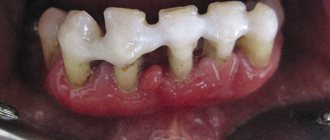There is no doubt: the treatment of pregnant women requires special attention and careful selection of medications. This is true for surgery and (doubly!) for anesthesiology. There are no absolutely safe anesthetic drugs; they all have their own toxicity threshold, which they reach in certain doses. And in each specific case, the anesthesiologist needs to correctly calculate the dose in order to put the patient to sleep, make him insensitive to pain, completely relax all the muscles and even stop his breathing. But all this is only for the duration of the operation itself, after which the person must “wake up”.
Any surgical intervention and associated anesthesia carries a certain risk for any patient. What can we say about a woman carrying a child under her heart! Pregnancy significantly changes the functioning of almost all major organs and systems of a woman. She begins to breathe differently, her liver, kidneys and heart work harder, the composition of her blood changes, her immune system is partially suppressed, her digestive organs are forced to work in a “squeezed” state, etc. And all this changes as the pregnancy itself progresses. When choosing anesthesia, the doctor takes into account the permeability of the placenta for anesthetic drugs, the baby’s ability to “digest” anesthetic “cocktails” and their effect on the formation of a small organism. All this puts a pregnant woman in a special risk group.
Most often, a pregnant woman ends up on the surgical table due to injuries, acute surgical diseases of the abdominal organs (such as appendicitis), exacerbation of chronic surgical diseases and dental problems.
So, in the first and second trimesters, anesthetic drugs are more dangerous for the baby than for the mother, especially between the 2nd and 8th weeks of pregnancy. At this time, the formation of the baby’s main organs occurs, and most anesthetics (painkillers) pass through the placenta, inhibiting the growth and development of cells, thereby increasing the risk of deformities (terratogenic effect). In addition to this, due to the operation itself and the action of anesthetic drugs, placental and uterine blood flow is disrupted, and the child’s nutrition deteriorates.
Surgery is also important for the mother. Due to the release of adrenaline and other stress factors, the risk of miscarriage increases. The mother is more likely to vomit during surgery and have the vomit enter the lungs (aspiration) and develop severe pneumonia. Because of all these dangers, in the first and second trimesters, pregnant women are operated on under general anesthesia only for health reasons, that is, in cases where refusal to operate directly threatens the life of the mother. Minor surgeries can be performed under local anesthesia, where an anesthetic is injected directly into the site of the planned surgery (for example, emergency dental procedures). But even so, some of the anesthetic can reach the baby, and maternal pain can increase the tone of the uterus, worsen uteroplacental blood flow and increase the risk of miscarriage.
If necessary and if possible, doctors try to reschedule the operation to a later date - 14-28 weeks (second trimester), since at this time the child’s organs are formed, and the excitability of the uterus to external influences is minimal.
In the third trimester, the risk of miscarriage and life-threatening complications increases even more; the abdominal organs are displaced and “squeezed” by the uterus, which also puts pressure on the main blood vessels in the abdomen, disrupting blood flow. Increased pressure in the abdominal cavity is transferred to the chest cavity, reducing the volume of respiratory movements, and the need for oxygen, on the contrary, increases: the mother also breathes for the child. Therefore, if major surgical interventions are necessary, doctors try to wait until the child’s lungs mature. First, a caesarean section is performed in the usual manner, and then the necessary operation is performed.
Nuances of dental treatment for pregnant women
The period of gestation in itself is not a contraindication to dental treatment. But when visiting a doctor, he must be warned about pregnancy, and also tell the due date. In this case, the following features arise during dental treatment:
- Bleaching is not allowed.
- Local anesthesia is required.
- It is possible to treat caries, pulpitis, periodontitis and gum inflammation.
- Under no circumstances should general anesthesia be used.
- Chemical and photo-curing materials can be used for filling. Polymer lamps do not harm the child.
Advice to expectant mothers - try to treat your teeth and gums before pregnancy or between the 3rd and 6th months of pregnancy, and also review your diet. If you have carious cavities, you will pass on a bouquet of microbes to your unborn child, and the destruction of your own teeth will accelerate several times.
Lyubomskaya Olesya Alekseevna, Dental surgeon-implantologist, dental therapist, dentist-orthopedist (K.M.N.) (Candidate of Medical Sciences), work experience 12 years
What to do if you are injured or have a question about emergency surgery?
In any situation, do not forget to tell the doctors that you are pregnant, indicate the due date and indicate whether you have a burdened obstetric history (complications during preparation for pregnancy or complications from this and previous pregnancies). Your escorts should know this too.
If you are offered hospitalization, do not refuse, just ask to be taken to a multidisciplinary hospital, where, in addition to a specialist in your illness, there will also be obstetricians and gynecologists.
Don’t be afraid if, in case of severe pain, the emergency doctors give you an injection of Morphine or Promedol: these narcotic analgesics have been studied very well, and it has been proven that they do not harm the baby, and you will reduce the risk of miscarriage due to adrenaline and its derivatives, which accumulate in the body from pain and increase the excitability of the uterus. Both mother and child do not become accustomed to narcotic analgesics in such a short period.
Tell the anesthesiologist everything about your chronic diseases and about your pregnancy, including the presence of toxicosis, intolerance not only to drugs, but also to foods and odors, because he will have to choose the method of anesthesia during surgery.
Features of dental treatment at different stages
0-12 weeks. The 1st trimester of pregnancy is very important for the fetus. It is during this period that the baby’s vital organs and placenta are formed. Therefore, the fetus is essentially not protected yet. Serious treatment cannot be carried out at this stage. But the doctor may prescribe topical medications to relieve the inflammatory process. These may be Cholisal, Chlorhexidine, Miramistin.
13-24 weeks. At this time, the placenta has already formed and protects the baby. Therefore, dental treatment and other procedures can be performed.
From the 25th week until birth. At this time, the female body is weakened, and the uterus is very sensitive to the effects of drugs. In addition, a visit to the dentist is often stressful for an expectant mother. Therefore, it is better to wait for treatment procedures until the feeding period. However, this does not apply to cases of acute toothache.
The main thing is caution!
Thus, surgical treatment methods and their anesthesia for a pregnant woman are complex and dangerous, but sometimes they cannot be avoided. There is only one way out in this situation: take care of yourself! Try to deal with your chronic diseases that require surgery before pregnancy. Don’t forget about dental problems: sad as it may be, one of the reasons for abortions and premature births is dental intervention during pregnancy, especially acute conditions, that is, dental diseases that cause toothache. Their treatment, as a rule, is also associated with pain. However, most of these diseases can be prevented by treatment before testing.
Try to avoid places that are dangerous for injury. If you are busy in production, ask management to comply with the Labor Code and transfer to a quiet area. Please note that a car is not the safest place in the city, and even if an ace is driving your car, it is possible that your neighbor on the highway will be a reckless driver. During pregnancy, you should sacrifice panache for convenience: hide thin stilettos, high heels and slippery soles away in the closet. Wear comfortable and stable shoes. Reduce for yourself and for your unborn child the risk of injury in the apartment (sharp corners, boxes falling from mezzanines, swinging stepladders and stools, etc.).
But if the need for surgical intervention does arise, do not delay, consult a doctor. Take care of yourself and your baby.
Dental diagnostics during pregnancy
If there is a need to remove a tooth or the patient has been diagnosed with pulpitis, an image cannot be avoided. However, traditional X-rays are contraindicated for pregnant women. After all, the fetus is sensitive to radiation. If an x-ray is necessary, it is best to postpone such a diagnosis to the 2nd trimester. In this case, it is necessary to cover the patient’s abdomen and pelvic area with a lead belt. It minimizes exposure to radiation.
The safest method of dental diagnosis for pregnant women is digital radiovisiography. This technique allows you to reduce the radiation load by 90% compared to conventional x-rays.
Sedation
Sedation is essentially a subtype of general anesthesia, but smaller doses of drugs are used. During the operation, the patient may experience minor discomfort and hear voices, but everything is perceived as erased.
Sedation lasts significantly less than general anesthesia, leaves fewer consequences and is easier to tolerate. Therefore, this method is most often used.
After the operation is completed, the anesthesia wears off quite quickly. It is enough to spend a few hours in the clinic, after which you can go home.
Features of anesthesia for pregnant women
During pregnancy, drugs that have minimal effects on blood vessels are used for pain relief. They also cannot cross the placenta and affect the baby.
Lidocaine is contraindicated during pregnancy. It can cause a sharp decrease in blood pressure, cramps and weakness.
Today, the best anesthesia option for pregnant women remains drugs based on anticain:
- Ultracaine.
- Altrifryn.
- Ubistezin.
- Alfacaine.
The listed drugs do not constrict blood vessels, which would be harmful for the expectant mother. They also have a local effect, so they do not affect the baby.
Pain relief for expectant mothers - the best choice
Epidural anesthesia is considered the safest method of pain relief for mother and baby during pregnancy .
To carry it out, a needle is inserted through holes in the spinal canal directly above the dura mater of the spinal cord, into the epidural space - just where the nerve roots pass that carry pain impulses from the uterus. To make the procedure painless, the skin at the site of the intended injection is numbed before the injection. Then a special needle is inserted into which a thin silicone tube (catheter) is inserted; the needle is removed, and the catheter remains in the epidural space - a strong local anesthetic is injected into it. As needed, a medicinal substance can be added through the catheter, prolonging the analgesic effect to 24-36 hours.
During epidural anesthesia, the patient should be in the most bent position: lying on her stomach, bent over, or sitting, bending over.
After administration of the drug, pain relief develops within 10-20 minutes.
When the catheter is inserted, it may touch a nerve, causing a brief shooting sensation in the leg. Another thing that can accompany anesthesia is sometimes a feeling of numbness, weakness and heaviness in the legs.
The following complications may occur after this type of anesthesia:
- Headache appears on days 1-3 after anesthesia in approximately 1% of cases. If a headache occurs, anesthesiologists prescribe bed rest, fluids and painkillers.
- Skin itching may occur at the injection site, which can be treated by taking antihistamines under medical supervision.
- Due to the prolonged position on the back and the effect of the anesthetic on the intercostal muscles, the woman may have difficulty breathing. In this case, oxygen is prescribed through a special mask.
- When an anesthetic is injected into the veins of the epidural space, dizziness, palpitations, a metallic taste in the mouth, and numbness of the tongue may occur. In order to prevent these unpleasant sensations, a test dose is first administered to the woman before the entire volume of the anesthetic is administered.
- Sometimes the effect of the anesthetic may affect only one half of the body. This can be easily corrected by tightening the catheter slightly.
Contraindications for epidural anesthesia are:
- sepsis;
- skin infection at the site of the intended injection;
- blood clotting disorder (before epidural anesthesia, a blood clotting test is performed);
- bleeding;
- neurological diseases;
- patient's refusal of pain relief.
For minor operations performed in the third trimester, other types of local anesthesia . They are less dangerous at this time than at the beginning of pregnancy because the risk to the baby decreases as it develops.
Tooth extraction during pregnancy
Tooth extraction is a good reason for stress. During pregnancy it is strictly contraindicated. Therefore, the decision to remove a tooth is made only in extreme cases:
- The presence of a cyst more than 1 centimeter in diameter.
- Fracture of the root or crown.
- Acute pain that cannot be relieved in any other way.
- A deep focus of caries, which is a source of suppuration.
Wisdom teeth should never be removed in pregnant women. After all, after such an operation the socket often becomes inflamed. Stopping this process requires taking antibiotics. This, in turn, is extremely undesirable for the mother and fetus.
What to expect during surgery
Immediately before surgery, Ranitidine is prescribed once or twice to reduce the acidity of gastric juice and reduce the risk of gastric burn to the upper respiratory tract in case of unexpected vomiting during anesthesia. In this dosage, it usually does not affect the development of the child’s nervous system.
If possible, pregnant women undergo regional (epidural, conduction) anesthesia . And if it is impossible to use this method, multicomponent balanced anesthesia with artificial ventilation of the lungs is performed through a special tube inserted into the trachea (endotracheal tube).
Mask anesthesia , in which the anesthetic enters the body through the respiratory tract, is not given to pregnant women due to the high risk of vomiting and getting it into the respiratory tract (aspiration).
Nitrous oxide , used by inhalation - using a mask, with constant use can cause a miscarriage or harm the development of the child. However, in low concentrations (ratio to oxygen content 1:1) and for a short time, it is still prescribed during surgery. In this mode, it does not have time to have a negative effect, but causes good sleep and relaxes the muscles, including the uterus.
Ketamine (Calipsol) , an anesthetic that is usually used for intravenous anesthesia, is used in the first and second trimester in small doses only for special indications and in combination with other drugs, as it increases the tone of the uterus. In the third trimester, its negative effect decreases.
When working with pregnant women, the anesthesiologist chooses pain management tactics and anesthesia drugs that meet the following principles:
- maximum child protection,
- support of normal placental blood flow,
- decreased excitability and decreased uterine tone,
- supporting the sustainable functioning of the mother’s body in the face of changes associated with pregnancy.
Advertising
In any case, if the need for surgical intervention arises, the doctor chooses one or another method of pain relief depending on the patient’s condition, the duration and characteristics of the proposed surgical intervention, and the capabilities of the given anesthesiology department, so it is impossible to clearly name the optimal method for such cases.
If surgery is necessary, you must follow all the recommendations of the anesthesiologist and other doctors and take the medications that are prescribed to you. If you doubt them, discuss it again with your doctor. Remember that almost all medications say that it is not recommended to take them during pregnancy. But when the issue of your health and life, as well as the health and life of the baby, is being decided, taking some medications is possible - of course, only under the control and supervision of your doctor.
Advantages of pregnancy management in our clinic
The Department of Gynecology and Obstetrics of the Pirogov Clinic on Vasilievsky Island (St. Petersburg) is among the TOP 3 best in the city according to the results of the VIII and IX ranking of private clinics (2018-2019). You can view reviews about pregnancy management on our website, as well as on independent platforms. By contacting us, you can be sure of high diagnostic standards and professionalism of doctors. We offer our patients:
- Services of experienced, attentive and caring obstetricians-gynecologists - our specialists worked and improved their skills in clinics in Finland, France, the USA, as well as in maternity hospitals in St. Petersburg.
- Having your own laboratory and all specialized doctors in one place, as well as medical offices equipped with new generation equipment. You can undergo all examinations in a comfortable environment and without queues. We guarantee the reliability of the results. There is no need to come pick them up - we will send everything by email.
- Remote video consultations with gynecologists (online).
- Affordable prices for pregnancy management in the 1st, 2nd, 3rd trimesters.
- Possibility of paying for services in installments.
- The clinic is located on Vasilyevsky Island - in a picturesque historical area not far from the station. m. Vasileostrovskaya.
- Pregnancy management under VHI.
You can make an appointment with a gynecologist through our website or by calling 320-70-00.











